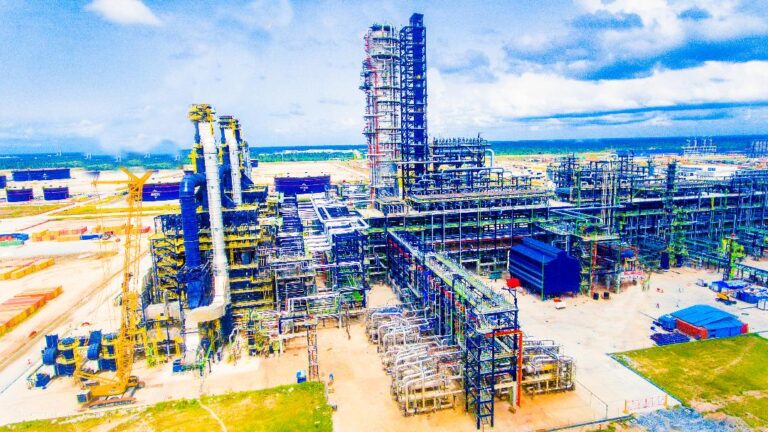- Partners MRS Oil
Dangote Petroleum Refinery, on Tuesday, announced a further crash in the prices of diesel and aviation fuel to N940, N980 per litre respectively, a forthnight after the widely celebrated drop in the prices of both commodities to N1,000 per litre.
The price change of N940, according to a statement by the Dangote Group, applies to customers buying five million litres and above from the refinery, while the price of N970 is for customers buying one million litres or more.
Speaking on the development, Head of Communication, Dangote Group, Anthony Chiejina, explained that the new price is in consonance with the company’s commitment to cushion the effect of economic hardship in Nigeria.
“I can confirm to you that Dangote Petroleum Refinery has entered a strategic partnership with MRS Oil and Gas stations, to ensure that consumers get to buy fuel at affordable price, in all their stations be it Lagos or Maiduguri. You can buy as low as 1 litre of diesel at N1,050 and aviation fuel at N980 at all major airports where MRS operates.”
He added that the partnership will be extended to other major oil marketers, the essence of which “is to ensure that retail buyers do not buy at exorbitant prices.
“The Dangote Group is committed to ensuring that Nigerians have a better welfare and as such, we are happy to announce this new prices and hope that it would go a long way to cushion the effect of economic challenges in the country,” he stressed.
This marks the third major reduction in diesel price in less than three weeks when the product sold at N1,700 to N1,200 and also a further reduction to N1,000 and now N940 for diesel and N980 for aviation fuel per litre.
Nigerian President Bola Tinubu had also commended Mr Dangote for the initial price reduction, describing it as an “enterprising feat.”
Reacting to the latest development, Director-General of the Manufacturers Association of Nigeria (MAN), Ajayi Kadiri, said “the decision of Dangote Refinery to first crash the price from about N1,750/litre to N1,200/litre, N1,000/litre and now N940 is an eloquent demonstration of the capacity of local industries to positively impact the fortunes of the national economy.”
He added that “the trickle-down effect of this singular intervention promises to change the dynamics in the energy cost equation of the country, in the midst of inadequate and rising cost of electricity.
“The reduction will have far-reaching effects in critical sectors like industrial operations, transportation, logistics, and agriculture, contributing to easing the high inflation rate in the country; a lot of companies will be back in operation.”







